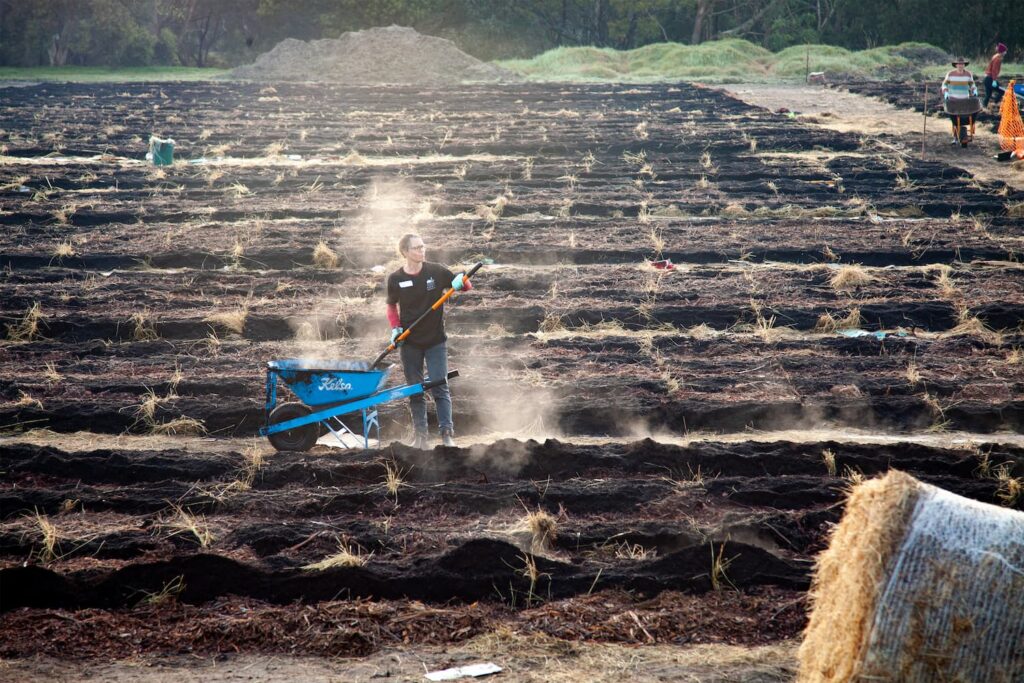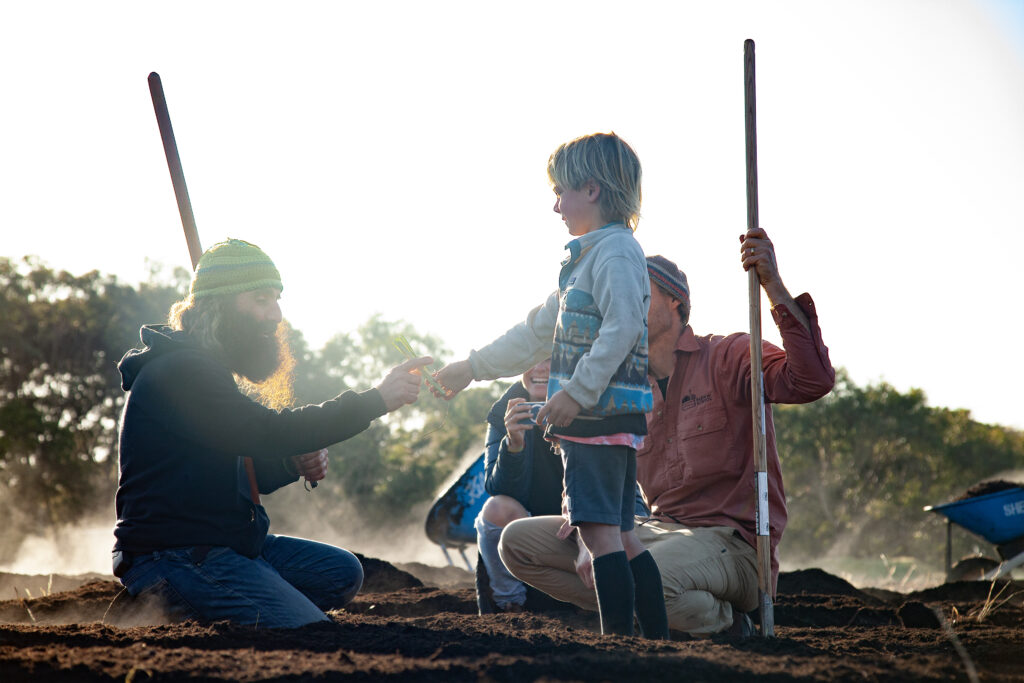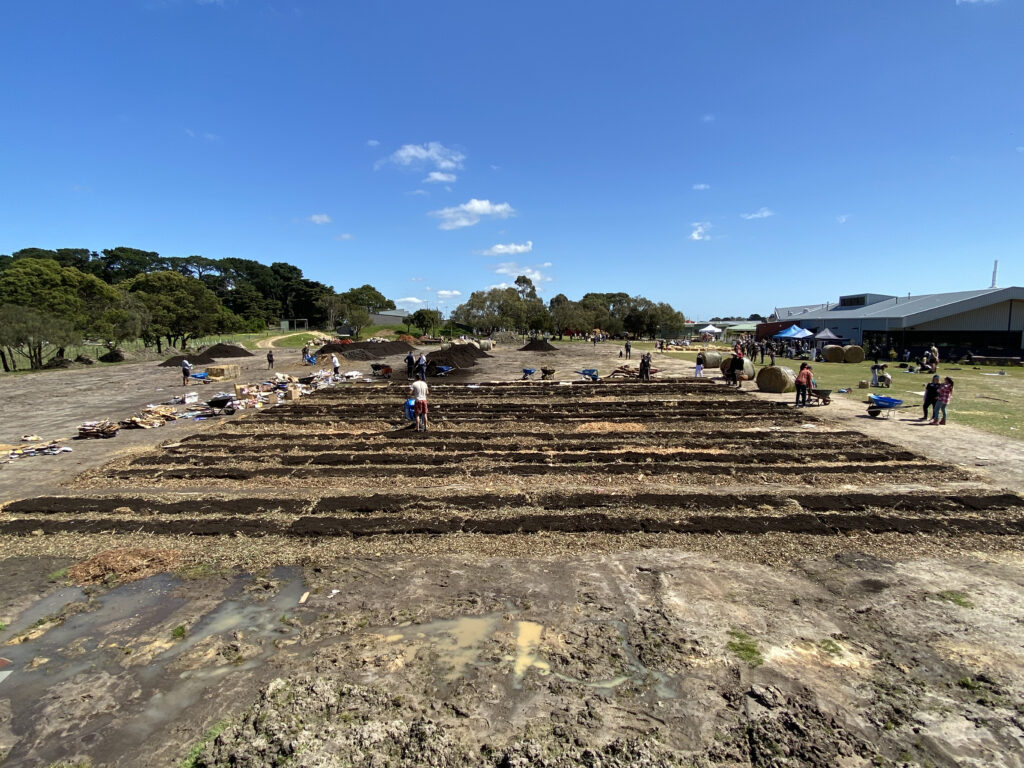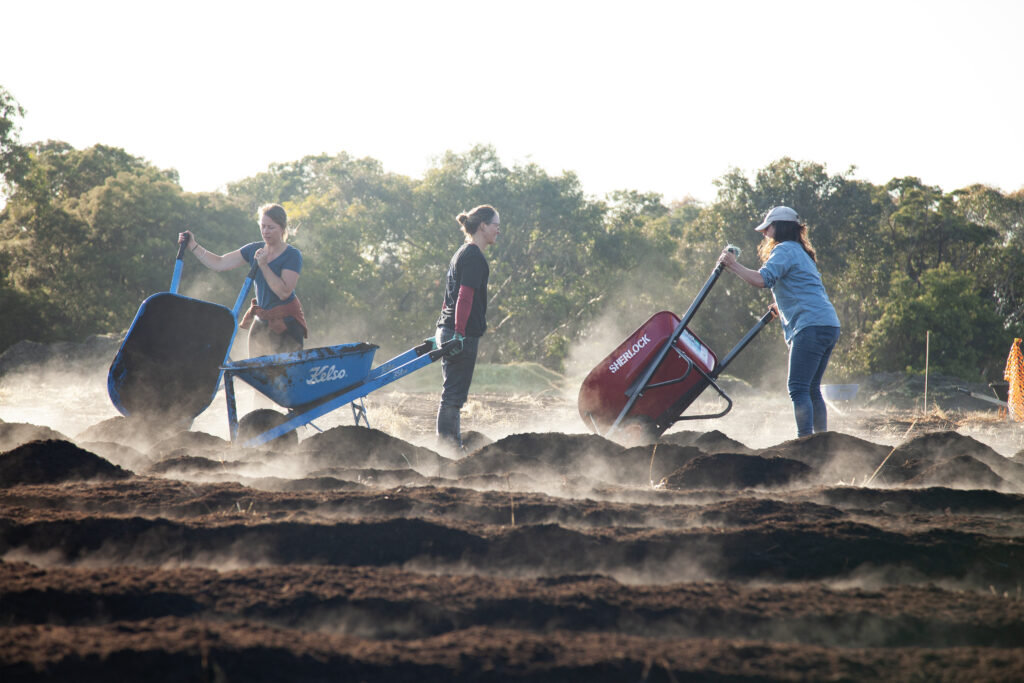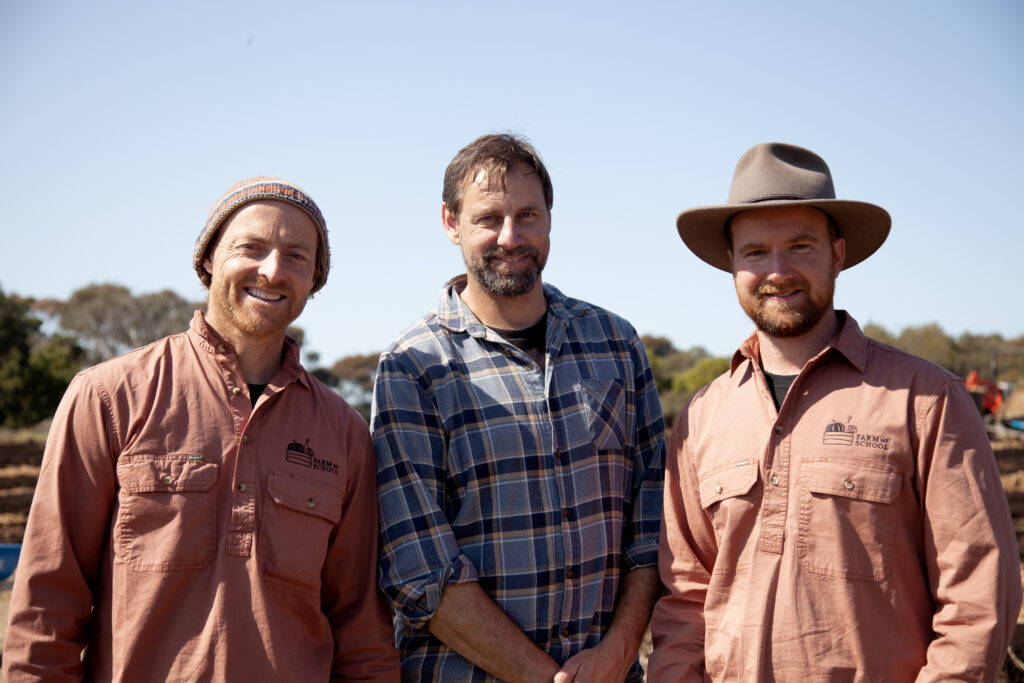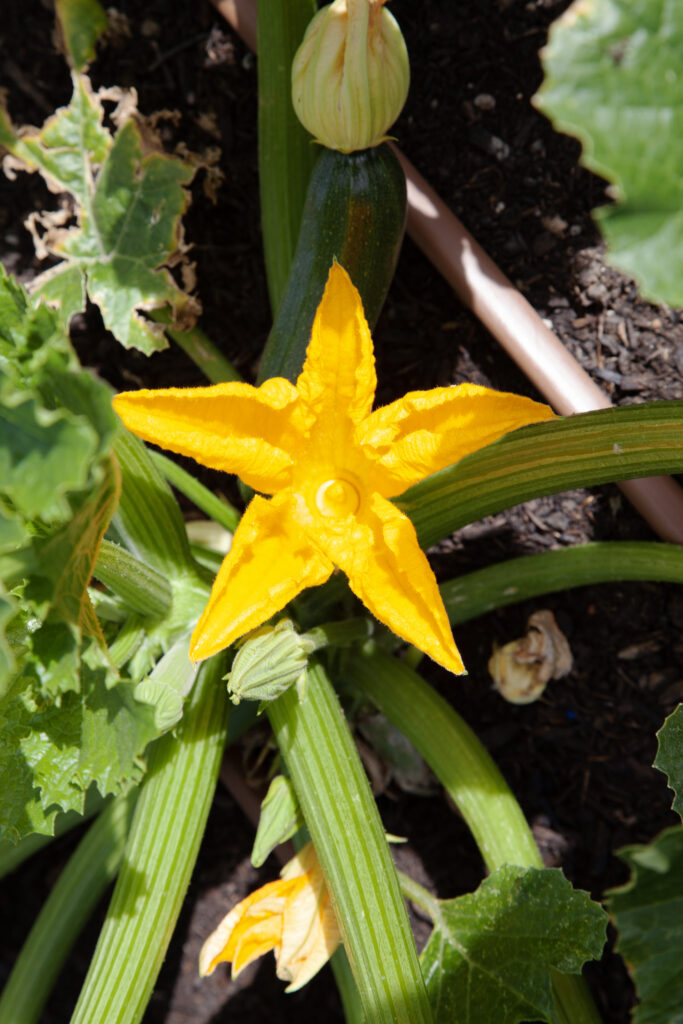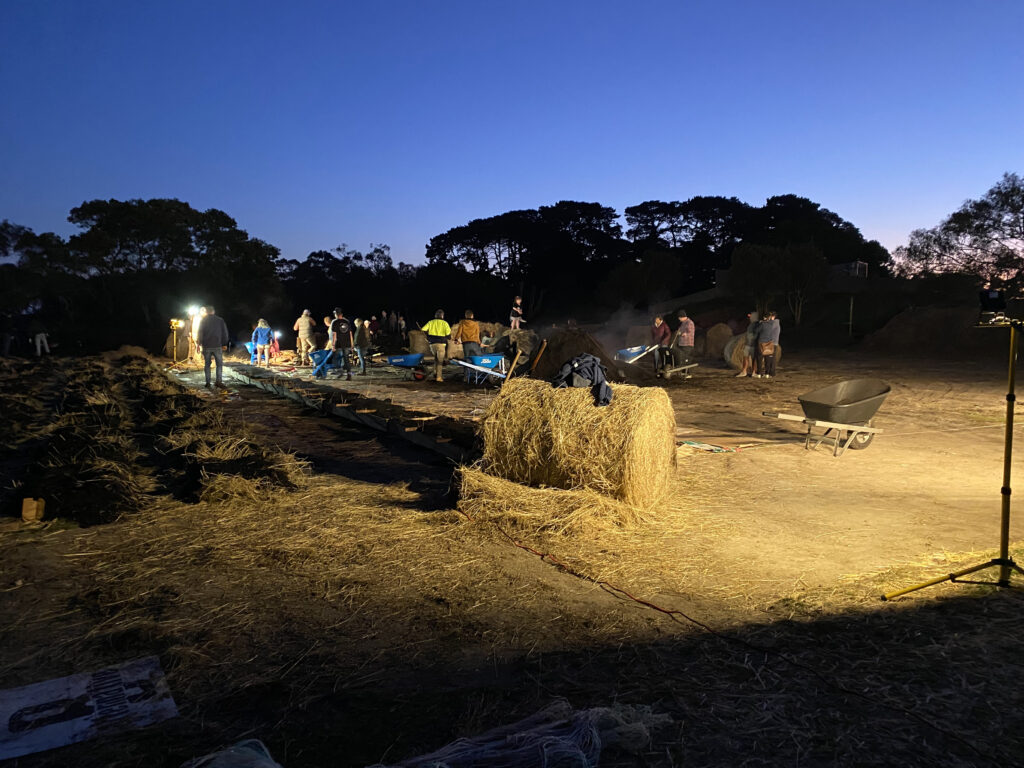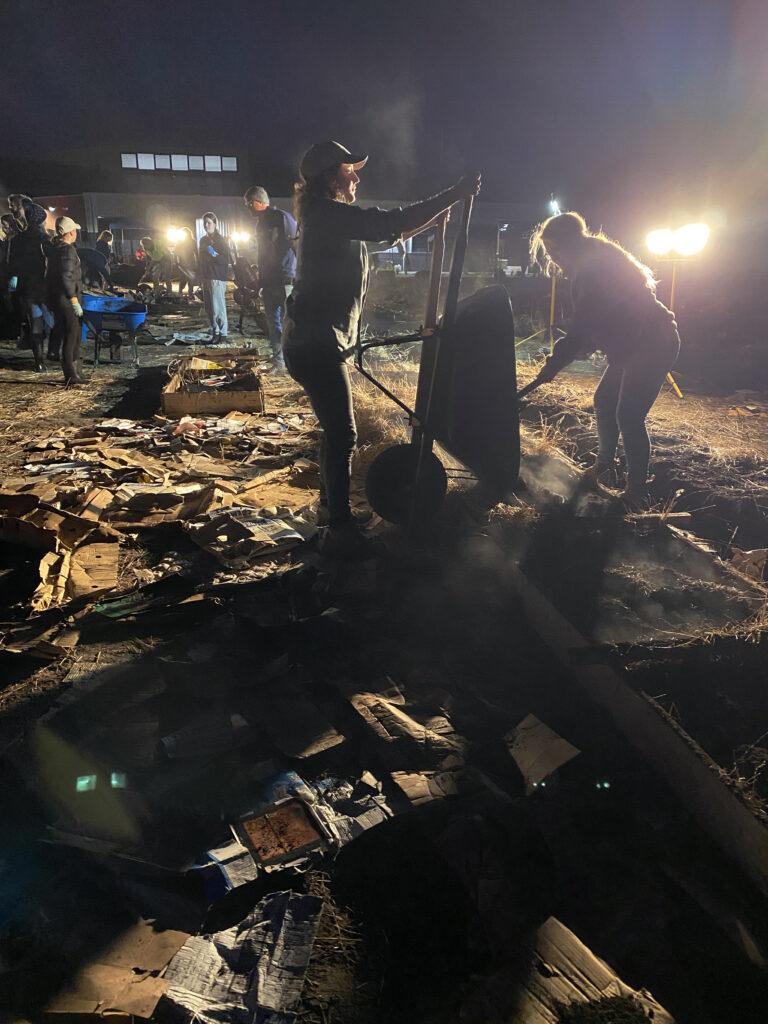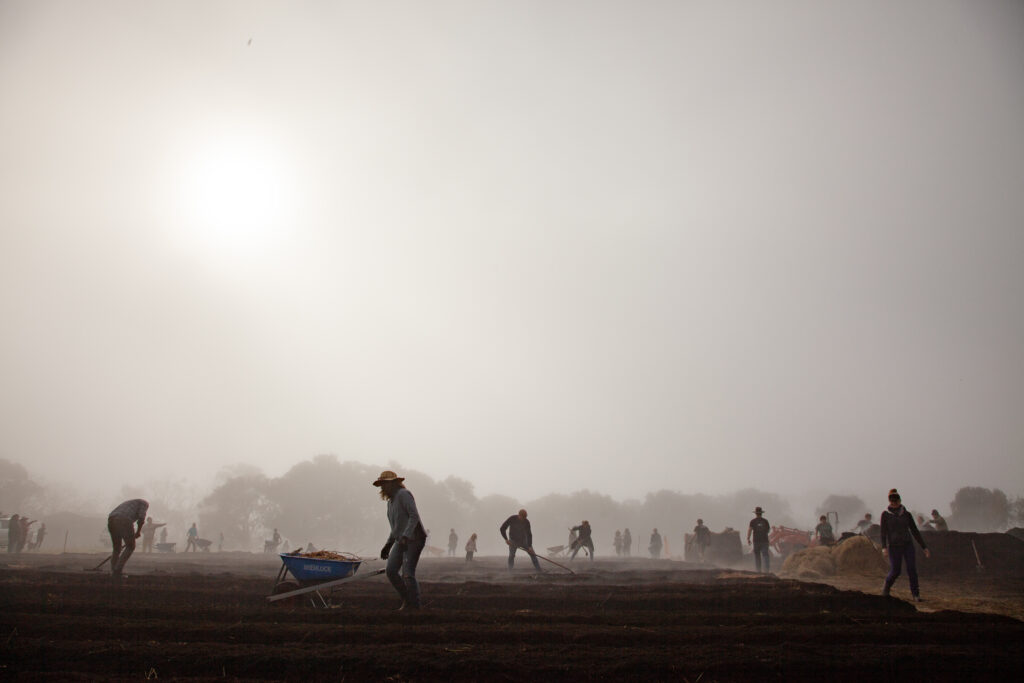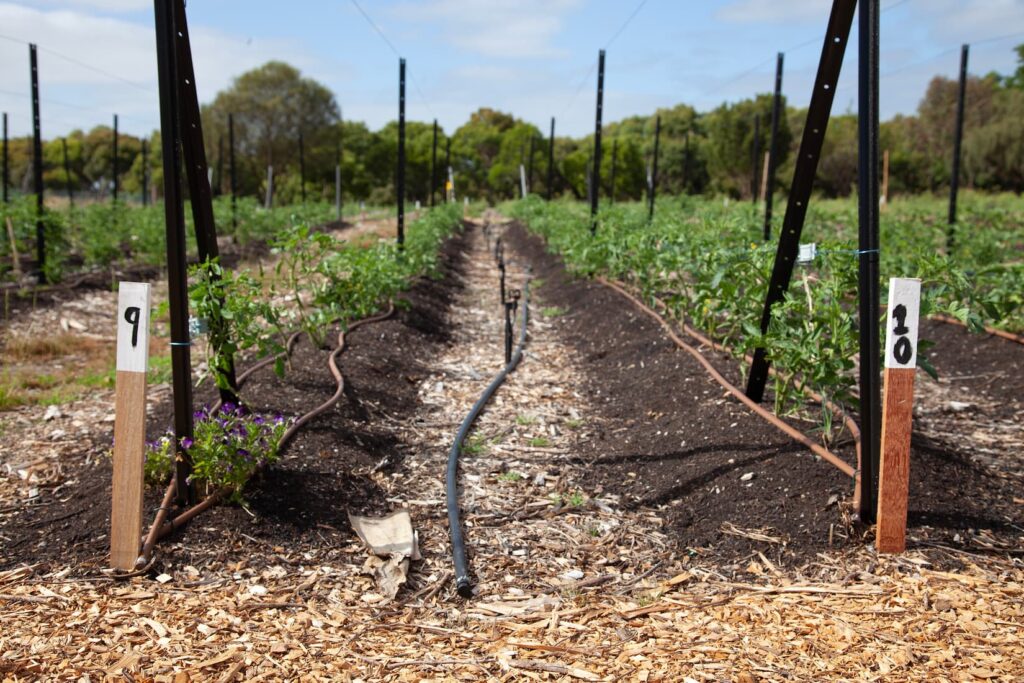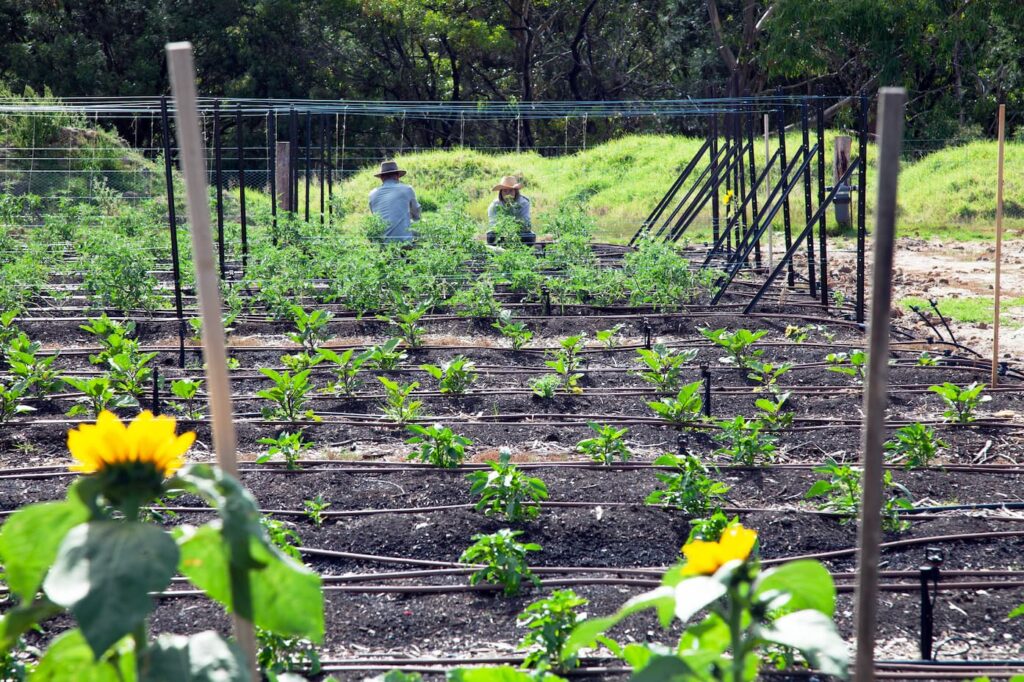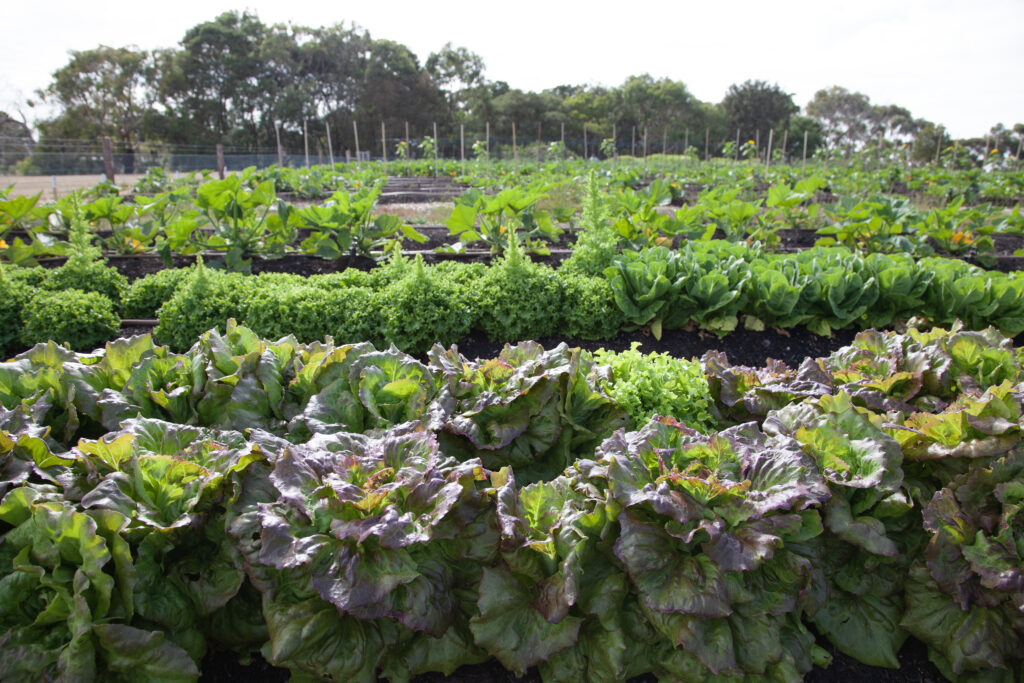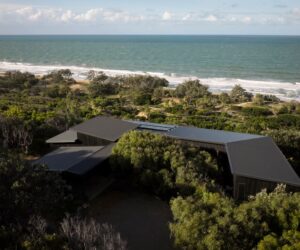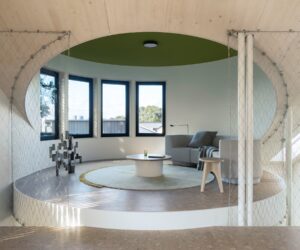Food for Thought—Farm My School on Victoria’s Bellarine Peninsula
Farm My School pilot site at Bellarine Secondary College at the 22 hour mark of the Build a Farm in a Day event.
The best ideas often feel inevitable, don’t they? Concepts so smart, so simple and so clearly needed, it’s bizarre to discover they don’t already exist. So it is with Farm My School, on Victoria’s Bellarine Peninsula, that’s turning underutilised land at secondary schools into commercially viable, regenerative market gardens farmed by and for local communities.
Co-founded by permaculturist Ben Shaw and regenerative educator James McLennan, Farm My School began in 2018 as a way to challenge globalised food systems, mitigate climate change, and bring regenerative small-scale farming back to the heart of local communities. By enlisting help from schools and surrounding communities, the program connects local people and organisations through volunteering that helps establish
a school’s market garden, which in turn creates a living wage for a regenerative farmer who ultimately runs it. Students help with food production and in the process learn about community networks, healthy eating, ecological stewardship, waste reduction and climate mitigation. Schools integrate all this into their curriculum while producing veggie boxes each week that feed local families, supply the school’s food needs and ultimately pay the farmer’s wage. Long-term, the program makes healthy eating easier and more visible, addresses food insecurity in areas of disadvantage, and presents regenerative farming as a viable contemporary career for secondary students considering their options.
In partnership with Bellarine Community Health, the pilot has been made possible through the support of Victoria’s Department of Families Fairness and Housing’s Engage! Grant. Launched last year at Bellarine Secondary College’s Drysdale campus, it has elicited such overwhelming support it’s already propagating seeds of change well beyond the peninsula. The team already has multiple schools keen to join, hundreds of Bellarine locals and businesses donating time and materials, and plans to scale up once they’ve implemented lessons from the three-year pilot and attracted additional investment. “It’s exciting, and it’s just so humbling,” James says. “All these volunteers are … so overwhelmed with joy about this project. They just want to be a part of it and are giving their time to do that. It’s a really beautiful thing.”
The pilot is well ahead of schedule thanks to the extraordinary enthusiasm of 600 locals who answered an Instagram shout-out to buy tickets to Farm My School’s launch event last October. The Build A Farm in a Day Festival featured gardening guru Costa Georgiadis and workshops by Ben and James to share the skills required to build what they say is the world’s largest no-dig garden. “The [school] principal joked, ‘I’ve tried to have working bees over the last 40 years and I’ll get three or four people turn up, and you guys go out and charge for the experience and 600 people turn up’,” Ben says. “It was such a powerful event, and I think that comes down to people wanting to do something. They want to act now. I think we really tapped into that in a positive
way.”
“We had five weeks to get the festival together and we had so many people dropping off cardboard, businesses dropping off woodchips, farmers driving two hours to drop off bales of hay. It really did capture something that’s hard to describe if you weren’t there. There were people who were really emotional the next day. Costa got really emotional. It was one of those true community-building events. People connected. They didn’t need a bunch of alcohol to get excited. We were gardening till
midnight. It was an amazing experience. That’s what’s kept the momentum going on this project. We’ve got true community buy-in.”
Volunteers have since planted 3000 seedlings grown by Bellarine Landcare and begun beneficial planting throughout the school. Next steps include discussions with Traditional Custodians, the Wathaurong People, employing a farmer, and bringing in a teacher to develop the curriculum. “We’ve seen this huge push towards seeing schools as regenerative spaces, not just for planting but for kids to be more connected to the outside world and really seeing the school in a whole new light,” Ben says. “For us, the big excitement around having a farm which produces food that the community can buy, and which pays for a dedicated, knowledgeable, valued farmer, means it’s not on the school to look after that farm anymore. Yes, they can take pride in it and embed it in the curriculum and help [run it] but, ultimately, it’s down to the farmer to grow the food, and that makes it much more sustainable.”
